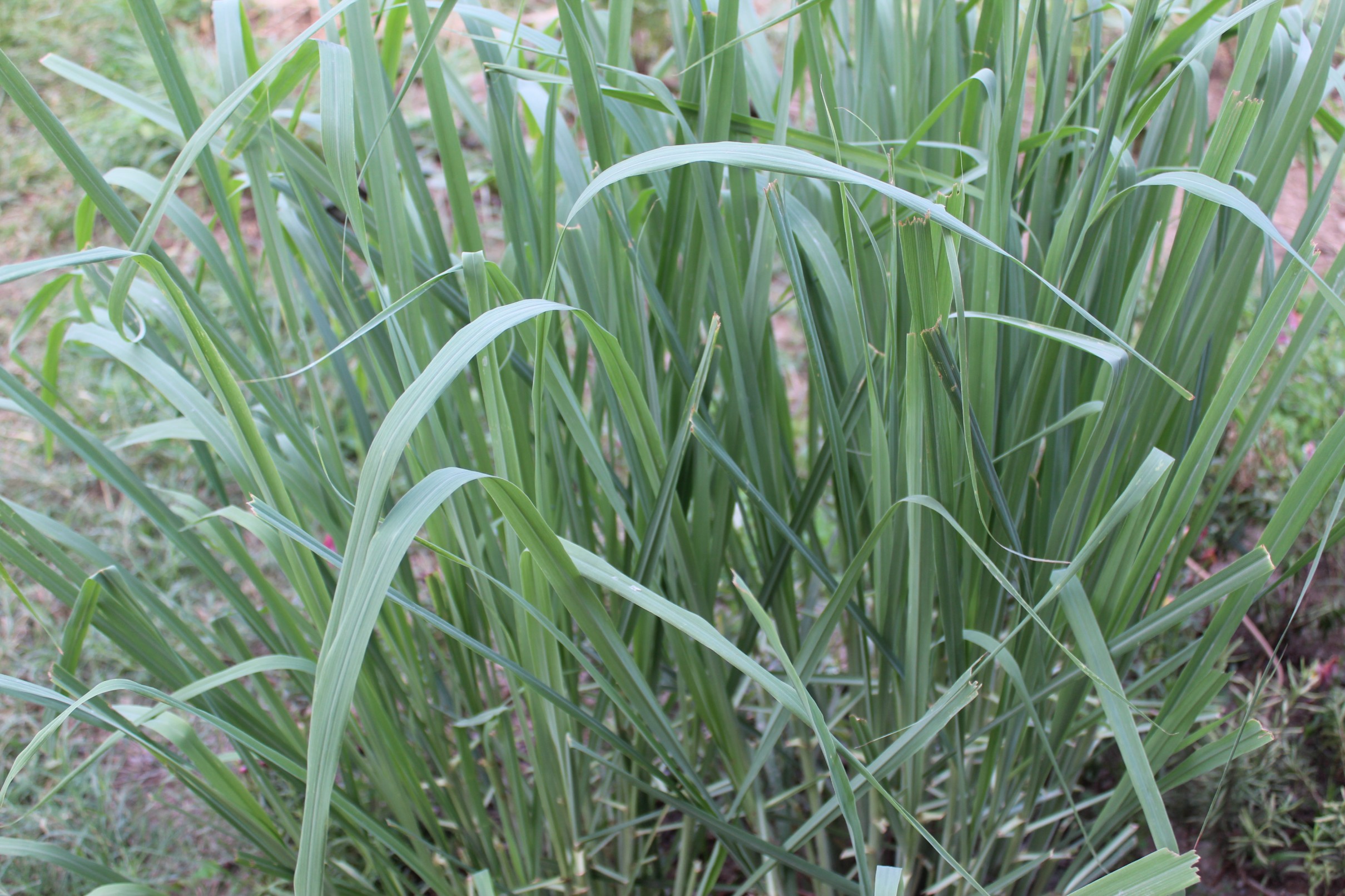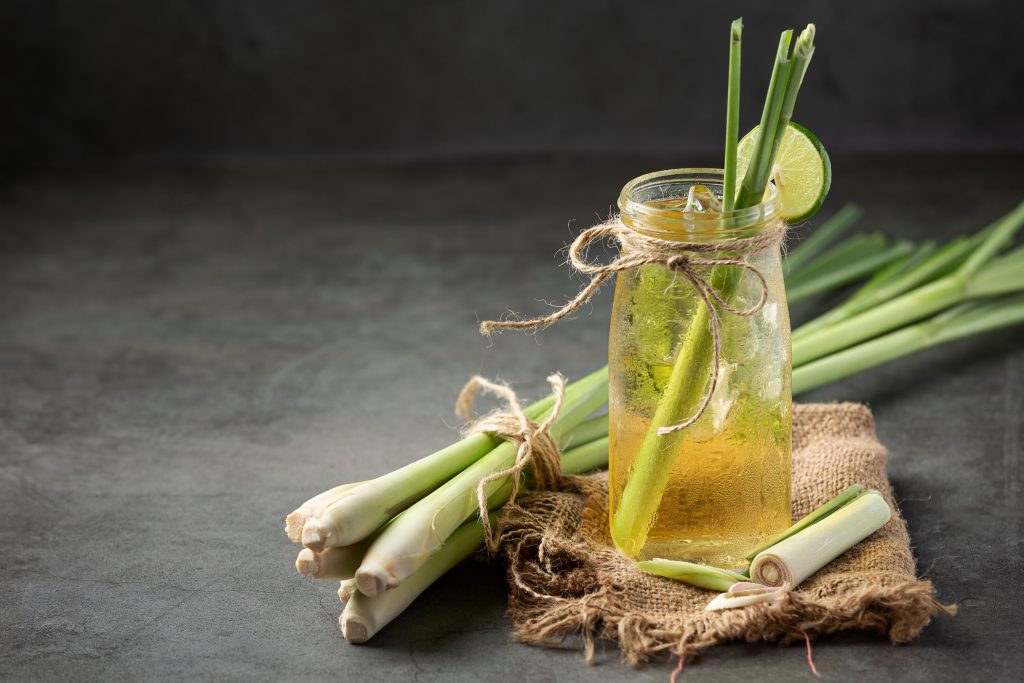Lemongrass is an herb with a lemony scent. The culinary herb is produced from the stalk of the lemongrass plant (Cymbopogon citratus). This plant grows in many tropical climates, most notably in Southeast Asia. It is a common ingredient in Thai cooking and can also be found in dishes from Indonesia, Sri Lanka, and India. Ayurveda calls it “Bhutrin”. The leaves and the oil of lemongrass are used to make medicines.
Growing Lemongrass
Buy a few stalks from the store and place the bulb end in water. Allow it to soak until roots form (this may take anywhere from two weeks to a month). Make sure to change the water once every two days. Once your lemongrass has developed roots 1/2 inch to 1 inch long, plant it in your garden or in a pot with lots of rich soil.
Lemongrass likes sun and warm temperatures, so if you choose to keep it indoors as a houseplant, be sure to give it a south-facing window. Lemongrass makes a beautiful houseplant or ornamental garden plant that you can also use in your cooking.

Benefits of Lemongrass
Lemongrass has antioxidants, antibacterial, anti-inflammatory, and antifungal properties and that’s why it’s used in medicines and various other kinds of treatment.
- It promotes healthy digestion
- It boosts metabolism
- It improves blood circulation
- Lemongrass is also used to treat acne, pimples, and eczema
- It helps in relieving menstrual pain
- Lemongrass tea can help in weight loss and controlling obesity
- In many countries where the lemongrass plant is native to the area, people will take the lemongrass stalks and chew on them as a way to improve dental health and keep the mouth clean and fresh.
- Lemongrass oil can be extracted, and it’s been used by healthcare providers to treat digestive problems and high blood pressure. It has many other potential health benefits, too. In fact, lemongrass essential oil is a popular tool in aromatherapy to help relieve stress, anxiety, and depression.
- According to a study, it’s found that drinking lemongrass tea can increase haemoglobin concentration in the blood.
- Drinking lemongrass tea can have diuretic effects, which means that it stimulates the kidneys to release more urine than usual. This diuretic effect on the body can be beneficial in cases where water retention leads to bloating.
- The essential oil of lemongrass is used as a fragrance for products including cosmetics, soap, and deodorant. It can also be used in making vitamin A supplements.
Side Effects of Lemon Grass
As with any medicinal herbs, care should be taken when using lemongrass.
No harmful side effects have been established for long-term use of lemongrass, but moderate initial use is recommended, and it should not be used by women who are pregnant or breastfeeding.
People with kidney or liver diseases should not use lemongrass in any form. People allergic to lemongrass should not use or handle the herb or oil and avoid contact with items or surfaces having had contact with it.
DIY Lemon Tea Recipe
Ingredients: Stalks of fresh Lemongrass, Sugar, honey, or any other sweetener, Twists/ slices of Lemon (optional).
You can take the following steps to brew tea:
- Cut the stalks into 1- to 2-inch pieces
- Boil about three cups of water
- Add the stalk pieces in boiling water and allow them to steep for 5 to 10 minutes or until aromatic. You can also add ginger and mint leaves if you want.
- Strain the liquid from the stalks and pour it into a teacup.
- Sweeten and serve hot with a twist/slice of lemon (optional).
Adding ice cubes will create a cold lemongrass tea.


